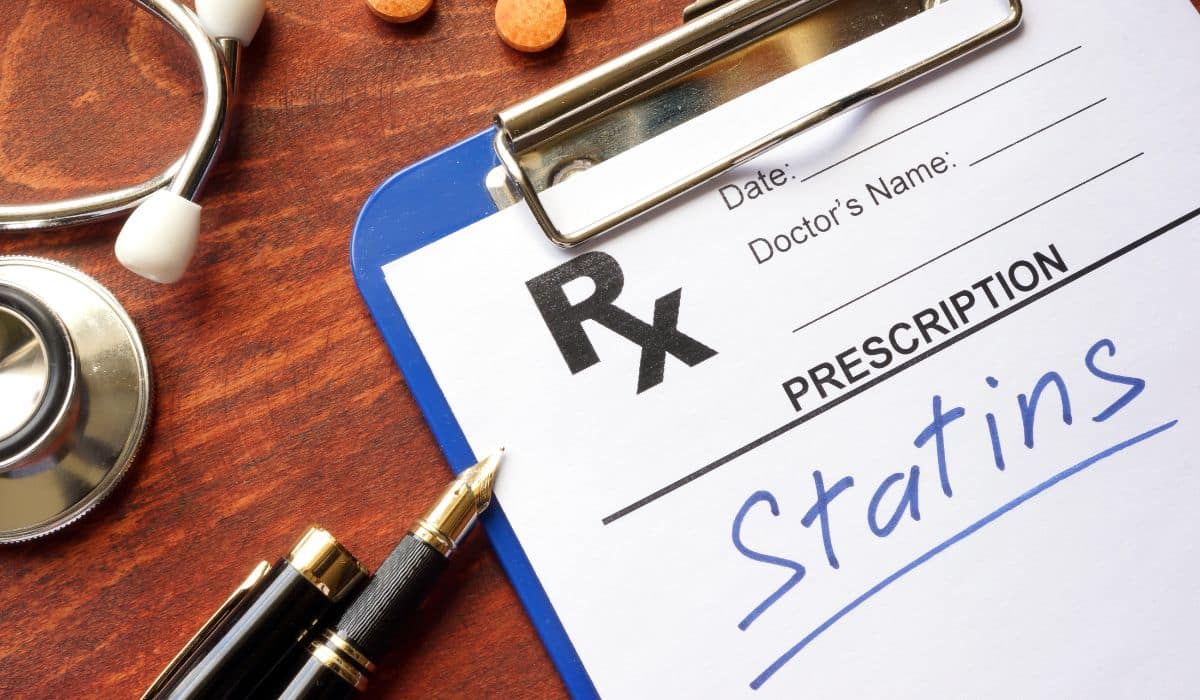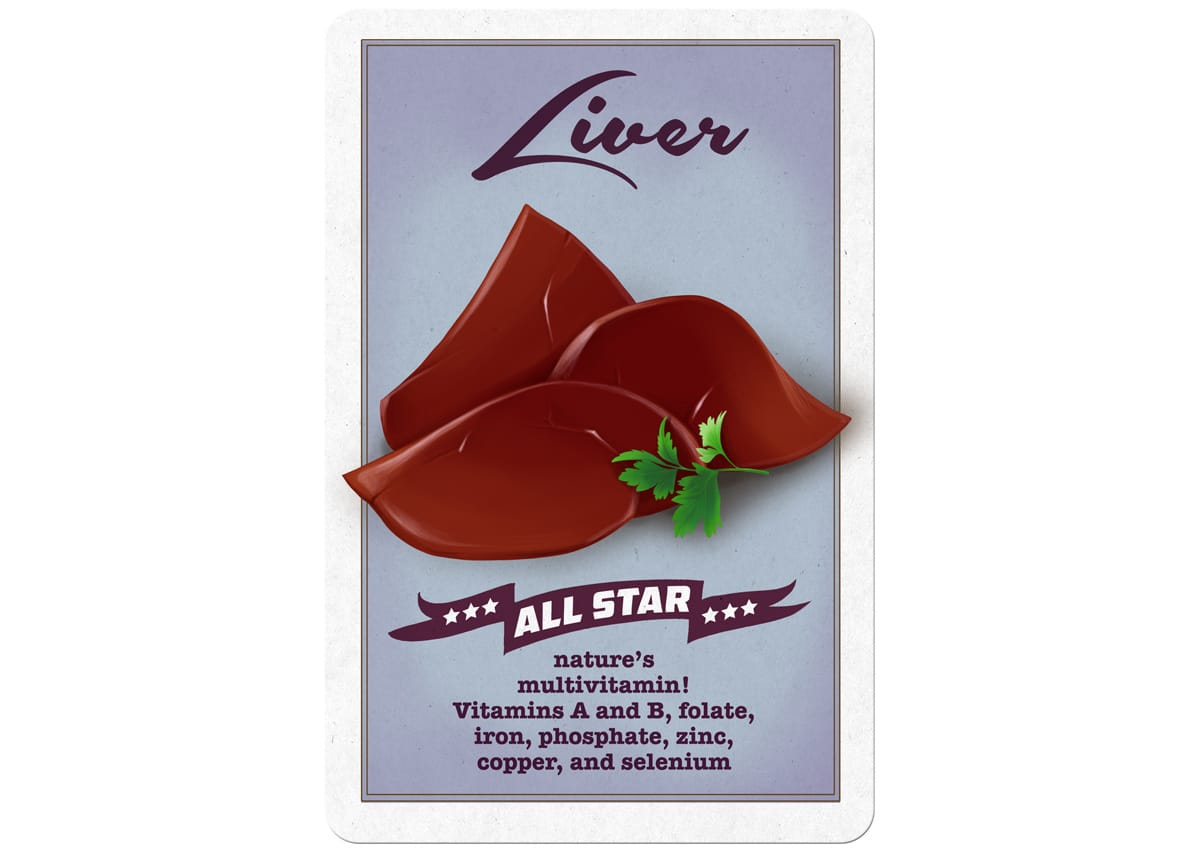
In the Paleo world, statins come in for some really harsh criticism – they’re overprescribed, the benefits aren’t that great anyway, and they have serious side effects. And all of that is true! But there’s a practical aspect of this debate that the statin critics miss: there is actually evidence that statins reduce the risk of heart disease for some people! And even if there wasn’t, statins are pushed so hard that a lot of people are going to take them anyway. Just detailing all the horrible side effects leaves those people totally out in the cold.
That’s a huge missed opportunity, because nutrition might actually help reduce some of the side effects – Paleo can still be helpful even if you’re taking a statin! So here’s a look at the downsides of statins with an eye to the practical: how to marry statins and Paleo eating to hopefully reduce some of the serious side effects, especially the diabetes risk.
Statins Aren’t Going Away
In general, statins are fairly effective at lowering cholesterol: they block the body’s internal creation of cholesterol, which is much more important than the cholesterol you eat.
But nobody cares about their cholesterol for its own sake. People care about their cholesterol because they think it causes heart disease. The real benefit of statins is supposed to be reducing heart disease risk. So how well does that work? In women, results are underwhelming, but here’s a Cochrane review finding that they do actually have at least a small benefit in many cases.
It’s important to note that the benefit might not be from the cholesterol-lowering effects. Statins are also anti-inflammatory drugs, and inflammation is a big factor in the development of heart disease. In 2008, a study showed that people with high levels of inflammation could benefit from statins, even if their cholesterol was perfectly fine (that study was also run by the man who holds the patent for an inflammation test, so take it with a grain of salt).
Here’s where the statin-haters will pipe up: statin trials are funded by the pharmaceutical industry! (True, and it introduces measurable bias). Statin trials exclude people likely to have side effects and they’re too short to accurately mimic real life! (True). Many statin trials use deceptive reporting to make their results sound better (True). If statins work by lowering inflammation, there are non-statin interventions for that! (Very true). The list of objections and problems is long and important, but the fact remains that some people are going to be taking statins anyway.
So let’s take a look at the side effects and problems, and how eating well might be helpful for people taking statins. Here, we’ll focus on two:
- Muscle aches and exercise intolerance, probably caused by lower levels of CoQ10
- Increased risk of diabetes
CoQ10 Depletion, Mitochondrial Damage, and Muscle Aches
One reason why statins cause muscle aches is the reduction of a substance called CoQ10 – which is ironically very important for heart health. But this is something you can address by eating Paleo or with supplements.
This review goes over the importance of CoQ10 for heart health, and the damage that statins can do.
CoQ10, short for coenzyme Q10, is a substance that your cells need to make energy in a form your body can use. So if you don’t have enough CoQ10, you won’t have enough energy available to do things like keep your heart beating, run a mile, or digest food. Reductions in CoQ10 significantly reduce your cells’ ability to produce energy. CoQ10 is also an important antioxidant, and there’s research specifically showing that CoQ10 supplements help prevent cholesterol from becoming oxidized. That’s significant because some research shows that oxidized cholesterol, not cholesterol in general, is the real risk factor for heart disease.
The normal range for CoQ10 is around 0.8-1mcg/mL, but going higher isn’t a problem, only going lower. CoQ10 levels naturally decrease with age, and exercise naturally causes a temporary decrease in CoQ10 levels because it demands so much energy.

But now enter the statins (cue dramatic villain music). Several studies have shown that statins decrease CoQ10 levels. For example, in this study, 34 patients were put on avastorstatin for 30 days. Before treatment, their average CoQ10 was about 1.26 mcg/mL, so they were doing pretty well. But after just 30 days, they were down to 0.62 mcg/mL, below the normal range. Another study found that statin treatment reduced CoQ10 levels by 40%.
Lower levels of CoQ10 might be the reason why some statin patients get awful muscle aches or exercise intolerance – the statin is basically re-creating the biological state of being tired and sore after a hard workout. The review then went onto cite quite a few studies showing that supplemental CoQ10 can raise levels of CoQ10 in the blood. In athletes, it reduces fatigue; in patients with heart problems, it can improve outcomes. A more recent review found several studies showing that CoQ10 could be helpful for muscle aches or pain with statins, with no significant risks of supplementation.
You can also get your CoQ10 from Paleo foods! Here are the foods highest in CoQ10:
No studies have directly tested diet for raising CoQ10, possibly because they’re afraid of the cholesterol in liver (which is ridiculous since dietary cholesterol has very little impact on blood cholesterol). But there’s no reason why the CoQ10 in foods wouldn’t be just as good – it’s the same stuff. A Paleo diet rich in nutrient-dense animal foods like salmon and organ meats might be very helpful for managing muscle-related side effects in people who have to take statins.
Statins and Diabetes: Don’t Trade One Chronic Disease for Another!
Another big problem with statins is that they raise diabetes risk. Partly this might be the CoQ10 again: CoQ10 helps control blood sugar, and in some studies CoQ10 supplements improve blood sugar control. But it may also be unrelated damage to the pancreas, the organ that produces insulin.
This review looked at statins and diabetes. The review found that statin patients had a 10-12% higher risk of developing diabetes than people who weren’t taking statins. The review suggested that statins prevented beta cells, the cells that produce insulin, from working properly. The damage to the beta cells reduced insulin sensitivity and made it harder for the patients to achieve good blood sugar control.
But how much of that risk was not just the statins, but also the statins + the typical conventional wisdom advice to eat a high-carb, low-fat diet full of “heart-healthy whole grains”? This study found that carbohydrate restriction (less than 50 grams/day, quite a low-carb diet) improved insulin sensitivity in subjects taking statins. So a lower-carb diet might be one Paleo-friendly way to at least reduce the diabetes risk associated with statins, if you have to take a statin in the first place.
Summing it Up
Statins have some annoying side effects – and some serious ones. Paleo in general is pretty down on statins, but they do have benefits for some people and it’s unrealistic to expect that everyone will immediately stop taking them. But you don’t have to choose between Paleo and statins.
Statins can cause muscle aches and fatigue by reducing CoQ10, and increase diabetes risk partly through CoQ10 and partly through damaging insulin-producing beta cells. In both cases, a Paleo-style diet can at least help to address the problem.
- CoQ10: no studies have tested foods rich in CoQ10 as a treatment for statin side effects, because all the other nutrients in something like liver would be too many confounding factors. But there have been plenty of studies on supplements, and there’s no reason to suspect that whole-foods sources wouldn’t do the same trick. The best foods are Paleo favorites: liver and fatty fish like salmon.
- Low-carb diet. There’s evidence that a low-carb diet might counteract the insulin problems caused by statins.
Paleo does have benefits, even if you’re also taking a statin. There’s no reason why you have to choose one or the other. Even acknowledging all the problems with statins and statin research, there’s still room for Paleo to help people who are taking them, and that’s an important practical benefit.





Leave a Reply